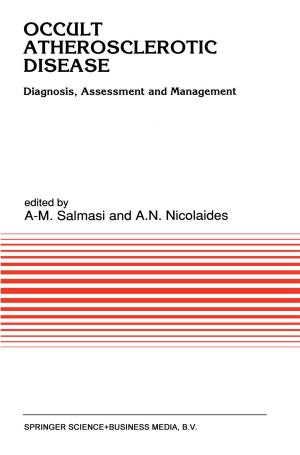Structural Shell Analysis
Understanding and Application
Nonfiction, Science & Nature, Science, Physics, Mechanics, Technology, Industrial Design| Author: | Johan Blaauwendraad, Jeroen H. Hoefakker | ISBN: | 9789400767010 |
| Publisher: | Springer Netherlands | Publication: | September 6, 2013 |
| Imprint: | Springer | Language: | English |
| Author: | Johan Blaauwendraad, Jeroen H. Hoefakker |
| ISBN: | 9789400767010 |
| Publisher: | Springer Netherlands |
| Publication: | September 6, 2013 |
| Imprint: | Springer |
| Language: | English |
The mathematical description of the properties of a shell is much more elaborate than those of beam and plate structures. Therefore many engineers and architects are unacquainted with aspects of shell behaviour and design, and are not familiar with sufficiently reliable shell theories for the different shell types as derived in the middle of the 20th century. Rather than contributing to theory development, this university textbook focuses on architectural and civil engineering schools. Of course, practising professionals will profit from it as well.
The book deals with thin elastic shells, in particular with cylindrical, conical and spherical types, and with elliptic and hyperbolic paraboloids. The focus is on roofs, chimneys, pressure vessels and storage tanks. Special attention is paid to edge bending disturbance zones, which is indispensable knowledge in FE meshing. A substantial part of the book results from research efforts in the mid 20th century at Delft University of Technology. As such, it is a valuable addition to the body of shell research literature of continuing importance.
This work can be used for university courses. It also shows professionals how to perform manual calculations of the main force flow in shell structures, and provides guidance for structural engineers estimating stresses and deformations.
The mathematical description of the properties of a shell is much more elaborate than those of beam and plate structures. Therefore many engineers and architects are unacquainted with aspects of shell behaviour and design, and are not familiar with sufficiently reliable shell theories for the different shell types as derived in the middle of the 20th century. Rather than contributing to theory development, this university textbook focuses on architectural and civil engineering schools. Of course, practising professionals will profit from it as well.
The book deals with thin elastic shells, in particular with cylindrical, conical and spherical types, and with elliptic and hyperbolic paraboloids. The focus is on roofs, chimneys, pressure vessels and storage tanks. Special attention is paid to edge bending disturbance zones, which is indispensable knowledge in FE meshing. A substantial part of the book results from research efforts in the mid 20th century at Delft University of Technology. As such, it is a valuable addition to the body of shell research literature of continuing importance.
This work can be used for university courses. It also shows professionals how to perform manual calculations of the main force flow in shell structures, and provides guidance for structural engineers estimating stresses and deformations.















